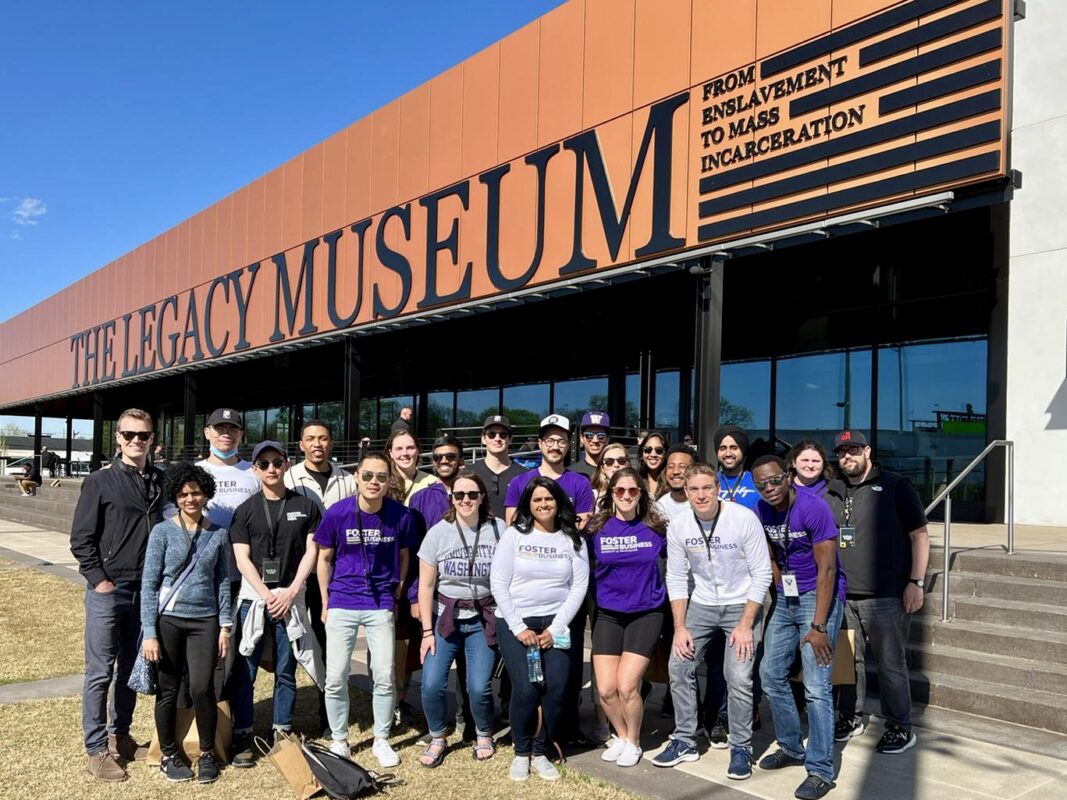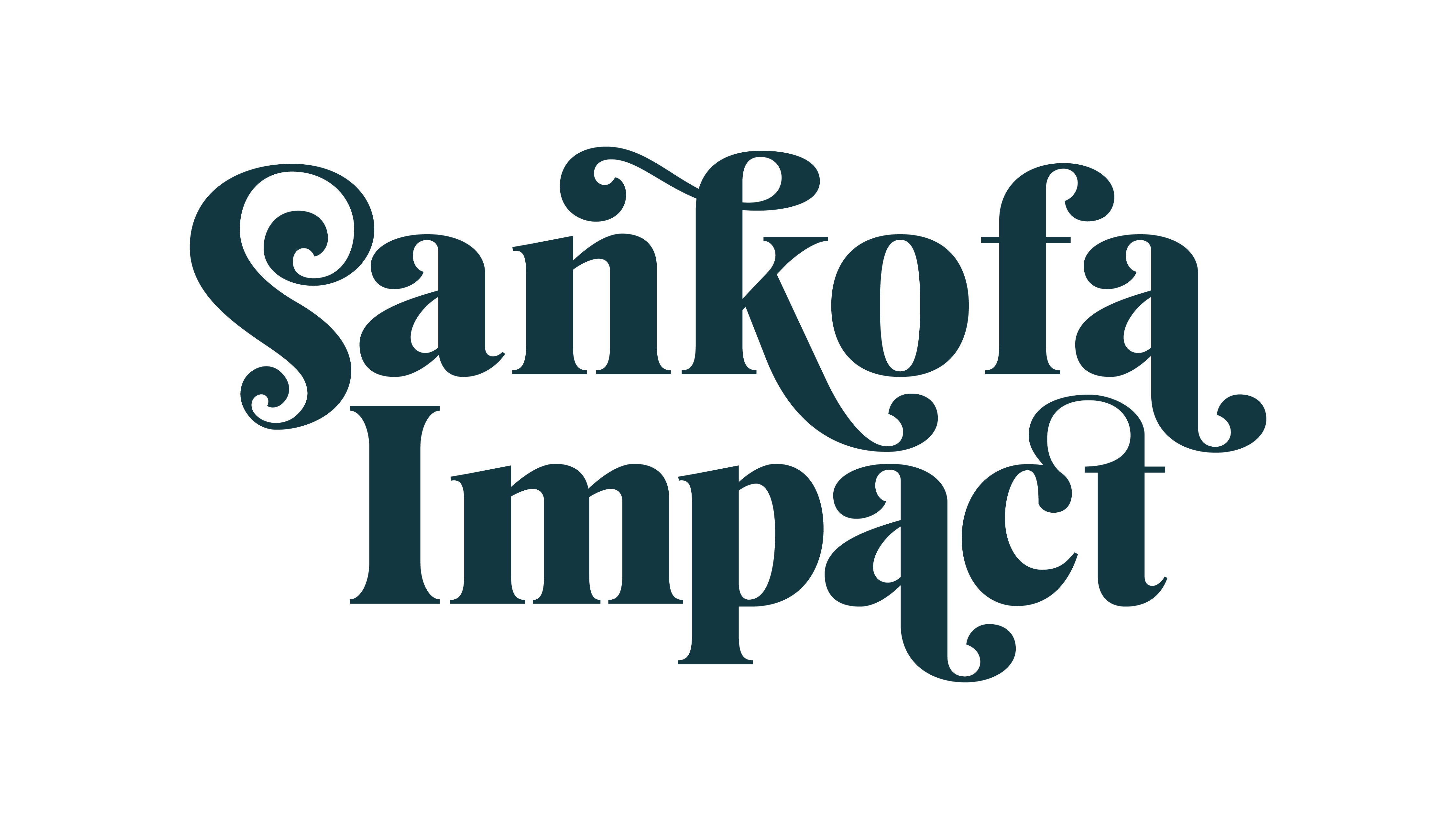A day after returning from a 7-day pilgrimage with Sankofa Impact and the University of Washington Foster School of Business, I watched Questlove accept an Oscar for his documentary, Summer of Soul (…Or, When the Revolution Could Not Be Televised). He said through tears, “This [documentary] is about marginalized people in Harlem that needed to heal from pain.”
As a white woman, I previously had heard Black performers and leaders refer to community pain and believed I intellectually understood it. After spending weeks of class sessions, and then the pilgrimage itself, steeped in first-hand accounts and place-based learning to bear witness to this pain, I now feel a depth of knowing that is difficult to describe.
Sankofa Impact’s place-based learning infused me and 19 other business students with a knowing we cannot ignore as we go on to lead at the world’s “most successful” companies and impact hundreds of employees which we will manage. We grappled with how the lessons from business school – low-cost structures, effective employee measurement, and creating “value” for shareholders – are not just a playbook for capitalist success, but also exploitation, oppression, and plundering.
For me personally, I came to business school after trying to make change from within the criminal justice system. I thought I could try my hand at effecting change through the private sector instead. During a visit to the Equal Justice Initiative, a legal fellow taught me that business and mass incarceration are not separate sides of society that only interact when marketing firms show us Kendall Jenner sharing a Pepsi with the police or when an executive is prosecuted for insider trading.
Wage inequality is a force multiplier of mass incarceration. It forces the innocent to accept plea deals and those who cannot afford housing or adequate mental health care to be over criminalized. After Sankofa Impact gave me this knowing, as a business leader, I cannot ignore that without proper compensation and working conditions for employees, I will be a tool of slavery’s current costume – mass incarceration.
On the last day of the pilgrimage, Sankofa Impact asked us how we are going to carry out Bryan Stevenson’s four rules for changing the world. Personally, I choose to change the narrative (Rule #3) around the externalities created by common business practices.
I also committed myself to remaining hopeful (Rule #4), by engaging with Black joy, excellence, and success. I was lucky enough to experience this kind of Black joy on the trip and that is what I will leave you with:
- New Orleans Business Alliance’s economic development plan centered around culture, equity, and prosperity
- StudioBE’s floor-to-ceiling portraits of Black icons
- The development of a tech district in Jackson, MS by Amazon’s Nashlie Sephus
- The blues stylings from Lucious Spiller in Clarksdale, MS.
Sankofa Impact’s HAMER values remind us to exercise resilience because, “Our history can be painful and the work is hard, so we must remain hopeful.” This work is difficult, bearing witness and gaining this knowing can be painful. Moving forward as business leaders, as we challenge long-held structures, it will be these images and sounds of Black art and success that will propel us forward.
Written by Rebecca Ballweg, MBA Candidate ’23

